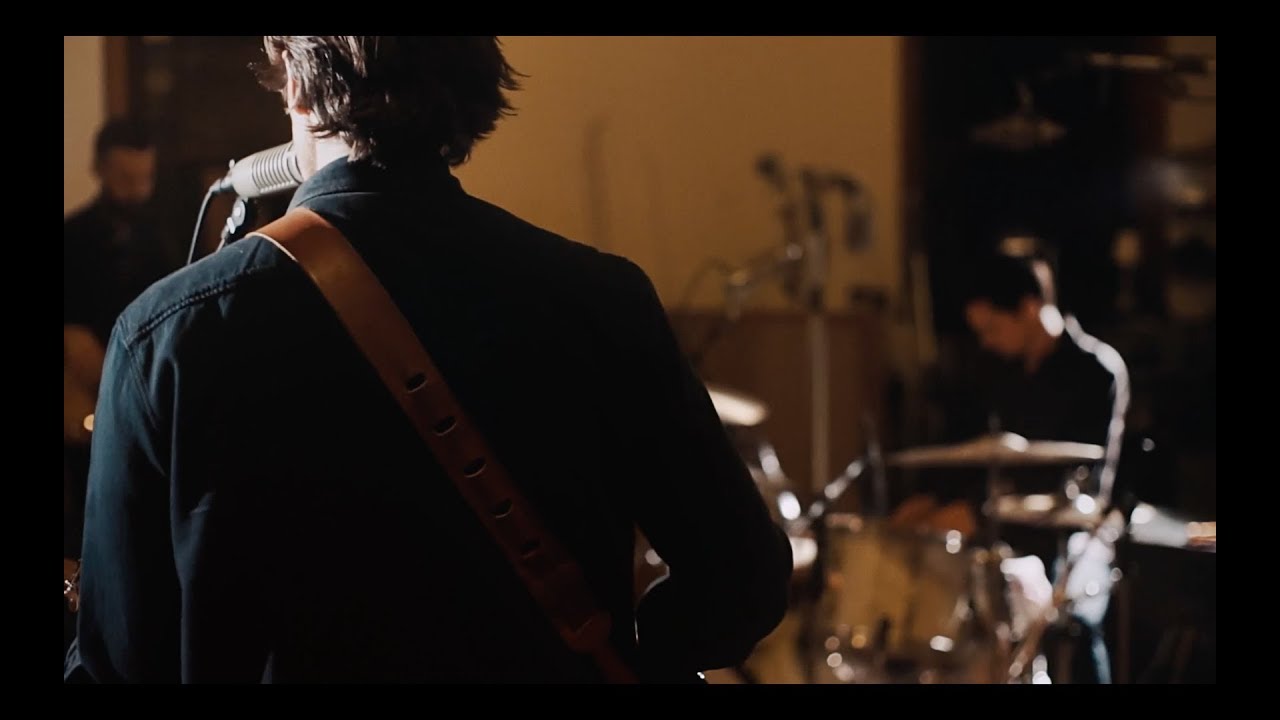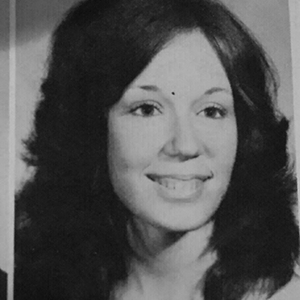“Miss Merritt has retired,” so the letter I received in the late ‘80s began. At the time, I was teaching at Jones County Junior College where my colleagues and I were enjoying Robert Fulghum’s bestseller, All I Really Need to Know I Learned in Kindergarten.
“I must have been a slow learner,” I told my coworkers. “I made it all the way to high school before I learned anything really useful.”
The news of Miss Merritt’s retirement only solidified my opinion. Phyllis Merritt directed the choral program at Escambia High School in Pensacola, Florida. As a singer in the auditioned group called the Rebelaires (later called the Escambians), I learned the simple axioms that transform ordinary experiences into life lessons.
Five days a week, choral groups numbering as few as thirty-five and as many as over one hundred gathered in one room, put aside cultural and political differences, and transcended personality clashes: you don’t have to like the people you work with in order to do a job well.
Her choral groups often sang pieces by such composers as Persichetti or Ives, whose notes sounded randomly selected, but were actually neatly arranged and organized on the printed score: what sounds like hopeless discord is often ordered harmony.
Her choice of choral literature often included texts in foreign languages and seemed composed on levels beyond traditional high school performance and understanding. We tackled Orff’s Carmina Burana, Schubert’s Mass in G, Berger’s Cantique de Jean Racineand learned to sing in German, Latin, Italian and French. My favorite was Faure’s Requiem, which we presented my freshman year. It was the very first large choral work I sang.
Miss Merritt booked First Presbyterian Church, one of the oldest churches in Pensacola. My only singing experiences had been in Baptist churches that usually have the choir facing the congregation at the front of the sanctuary. Although that arrangement allows for facial interaction between the singers and the hearers, the sound has to transverse all sorts of physical obstacles before filling the sanctuary. These Presbyterians hid their choir and organ in the balcony, a location that added to the ethereal natural acoustics of wood, glass and stone. Instead of the choir projecting the sound forward and up, the harmony wafted downward covering the audience like a mantle.
Of the movements, for me the Agnus Dei holds the most magic. It begins in pathos and pleading repetition then abruptly yields to measured silence, like drops of holy water beading on a thurible. Motionless, we singers strained to continue, but waited on the conductor to give us a sign. Miss Merritt inhaled then nodded to the sopranos and the dawn of sound began. Their unison so soft and pure it seemed more felt than heard, these female prophets prophesied a single, rounded word: lux. And then as more voices joined, the luxexpanded into lux aeterna, a single spinning sound so bright the very walls shone with the sound, until the single note burst like a lush ripe grape into chords that seemed refracted into infinity: luceat eis. At that moment, I knew I never wanted the music to end. Later, as I moved away from home and became the new singer in community choruses, those same skills and literatures became my passport to membership: to have music is to be everywhere at home.
Almost everybody wants to be the soloist, (and managing the teenaged prima dona requires an extra dose of patience), but only one person can be the star. I’ve watched many so-called friendships irreparably rupture during auditions. A choir, however, requires many people. I am a non-musical “soloist”— as an unmarried, orphaned only child—I eat, live, and sleep alone (unless two Chihuahuas count). When I am willing to blend with others, however, as a choral singer, I always perform.
Often at choral festivals, several different groups would perform the same selections. Those groups who sang the same songs or had to follow the performances of Miss Merritt’s groups usually suffered from the comparison. In 1974, while at the Florida Vocal Association at Florida State University, I made a last-minute stop at the ladies’ room. I had just closed the stall door when two directors entered. I never discovered their identities, but their conversation left no doubt about whom they spoke.
“This is the third year my advanced kids have had to follow her group. Who puts the order together? My kids think they sound good until Phyllis’ choir performs and then they lose their confidence and don’t want to go on stage,” said the first director. “Seriously. You’re on the festival board. Can’t you do something?” I peeked through the space between the door and the wall; she lit a cigarette and took a long drag before handing it to her companion. “My god they win every year. Couldn’t they just perform without being adjudicated?”
The second director exhaled and fanned the smoke. “What do you want me to do? Nobody wants to follow her.” She returned the cigarette.
“You could always draw numbers for performance positions,” my mouth said, while my brain chanted,“Oh, damn.”
After a long silence, one of them said, “That’s a good idea. Now, what choir do you direct?”
I sighed. “I don’t. I’m in one of Phyllis’ groups. In fact, I’m supposed to be in warm up right now.” I flushed the toilet. By the time I opened the door, they were gone.
When we reacted negatively to other groups that poorly performed “our” literature, Miss Merritt reprimanded our ridicule. If a singer didn’t get the hint, she made the singer sit out the performance or go home. After hearing the bathroom conversation, I understood her admonition: to be good, graciously.
If one of her choir’s pronunciation and enunciation sounded muddy, Miss Merritt stressed the importance of text. One memorable example concerns a choir director who, in malapropian fashion, confused “prostrate” with “prostate” and “calvary” with “cavalry.” An audience deserved the best of both pitch and text for complete meaning. Miss Merritt’s rule: if a song sounds harmoniously good but an audience can’t understand the lyrics, choose something else to sing.
Student body conduct and cultural disagreements in 1975 often diminished or canceled extra-curricular activities. Miss Merritt, however, believed that the rehearsal and the show should go on. One afternoon during class change, a fight broke out in the hall by the rehearsal room door. I watched, horrified, as a student swung a pocket knife and sliced Miss Merritt’s palm. Miss Merritt continued to get the singers into the choral hall and then she and another teacher bolted the door. Someone brought the first-aid kit, swabbed her hand with alcohol and an antibiotic cream then wrapped the wound. The rest of us absently sat on the risers.
“What do you think you are doing?” Miss Merritt said. She looked at us. “You’re not getting out of rehearsal that easy. Get your folders.” I know her hand must’ve hurt, but if she could make herself conduct, how could we not follow her lead and sing? In that incident, she modeled professional behavior: if others fail, don’t lower your own standards.
No one sings in a vacuum. The singer relies upon physics for harmony and pitch and acoustics, physiology for the mechanics of breathing and producing sound, mathematics for rhythm and beat, literature for text, linguistics for pronunciation and history for authentic performance: singing like the post-high school world we entered is interdisciplinary.
In 1973–75, the Rebelaires had the privilege of performing in memorable venues. When operatic bass Jerome Hines needed a back-up choir for his performance in Pensacola, we learned his music and shared his stage. Frank Sinatra, Jr. dropped by between gigs at the Municipal Auditorium. Much to the disappointment of other singers in town, The Rebelaires performed for President Gerald R. Ford and his entourage. The year had been not so pleasant for the President, who had only assumed office in August after the resignation of Richard Nixon. Our selections included “What a Difference a Day Makes,” “For All We Know,” and “Nobody Knows the Trouble I’ve Seen.” Even now, none of the singers is sure whether the irony was deliberate or circumstantial. The President seemed unfazed by our choices. He thanked us for our contribution and gave us each an autographed card. The signature may have been the work of an automated pen, but I have kept mine anyway.
In later years, Miss Merritt has added another axiom to the mix: music is the great unifier and the great healer. We alumni Rebelaires proved this truth. We joined alumni of her various other auditioned ensembles to persuade Miss Merritt to abandon retirement and take up her baton to conduct us again. Her high school singers had matured into dentists, cardiologists, university professors, IRS forensic accountants, military officers (including two brothers who served at the Pentagon during the 9/11 plane crash), scientists, engineers, firemen, public servants, CPAs, teachers, graphic designers, and even some who became professional musicians. To our great good fortune, she said yes. This time we had no school mandated venue, budget, music, or salary. We underwrote the costs ourselves because we still believe in her unspoken but performed standards.
Most of all, we believe in performing. Because we are not all from the same high school, we put aside school rivalries and embraced a universal name: the Phyllis Merritt Singers. We have rehearsed in whatever venue will have us. We are the first group ever to perform in the Washington D.C. National Holocaust Museum. At first, our music shocked the workers, and they came forward motioning for us to stop. Then as they heard our texts in Hebrew by Jewish composers, they stopped and as they listened, they wept. When we finished, at first, no one moved. Then as we Gentile singers moved silently from the room, many in the audience reached out and touched our arms as we went by, a blessing for a blessing.
We are one of the first groups to sing in the Pentagon after 9/11. We sang about peace both in the interior mall and in the area surrounding the crash site. We sang “God Bless America” in the nation’s capital, a place which usually prohibits performance. Veterans living in the old Soldier’s Home (now called the Armed Forces Retirement Home) visited with us after our concert. When they heard we were singing at the World War II memorial, some gave us the names of their fallen friends to carry while we sang. The night temperatures quickly fell and the warmth of our voices made vapor, as if the songs released whatever ghosts might linger in that place.
An impromptu concert in the national cathedral stopped decorators preparing for Sunday’s hanging of the green. We sang two Christmas concerts at the Biltmore Estate. After each performance at least one person asked why we would travel so far to sing unannounced and unpaid, especially at places where music often seemed out of place, for people we didn’t know. Our answers, both personal and unique, remain known only to the speaker and the listener.
If not for Miss Merritt, I might never have resolved some of my personal conflicts. Robert Frost said that he had a lover’s quarrel with the world. My quarrels are of a lesser scope yet equally as grave— I have had a lover’s quarrel with the church. Quarreling with an organization seems foolish, since organizations are nonresponsive and oblivious to individual remonstration. I had a pseudo-reconciliation with the church after Mrs. Griffith taught unison singing in my elementary school. Once I reached the age of singing accountability and joined the adult choir at church, the experience immersed me in the whole body experience of multipart sacred choral music.
I had heard choral music as it moved through the sanctuary. Never before, however, had I bathed in its harmony, immersed from all sides by sounds so in tune that my baby fine hairs stood. That sensation evoked the same surprised visceral response as the only time I swam naked. In the middle of a hot muggy night, unnoticed but for the shadows cast by moonlight illumination, I slipped into an above ground pool. For the first time, I knew the physical shock of moving water against unclothed skin. Each experience, the water and the choral harmony, provided a moment of wide-eyed, involuntary, inhaled, “O!” The music provided an easy and long lasting peace, until I moved into high school.
The real quarrel started with the infiltration of new theology—much like the confusing “new math” of the ’60s or the common core curriculum today—with its edict of relevancy and influx of entertainment. For me, the church worshiptainment of Facebook discussion isn’t new and wasn’t spawned from praise choruses, musicals, or electric instrumentation. It began in the 1970s Southern Baptist Sunday school. In the11th grade department, Joseph and Mary arrived in Bethlehem not on foot and donkey, but in a shiny pink Cadillac convertible. The kids chosen to read the scripture passages did so seated behind the cardboard steering wheel. Who knew the Virgin Mary sold Mary Kay?
And that is when, much to my mother’s shame, my grandmother’s disappointment, and my father’s tolerance, I became a Presbyterian. I remained a Presbyterian until I could no longer stand the banishment of choral music in congregations who barely sang unison during hymns. After that, I determined church membership not for the preaching but for the music. For me, God is Himself a trio and has always been present in the harmony. The ensemble. Vocal or instrumental. Harmony allows freedom beyond. In my clichéd “heart-of-hearts,” I have never wanted to be a vocal soloist because most of my life, I’ve been a social soloist: I teach alone, live alone, sleep alone, usually eat alone. These characteristics are not complaints, just statements of the obvious.
So, perhaps for now, my lover’s quarrel has reached a stasis. I have made a place and from my vantage point a certain peace in a world where more or less I still move as “the other”—except for the rare occasion with good choral singing and I become part of an “us”—but that intimacy dissolves with the final overtone. From my position in whatever choir loft, whatever others’ motivations may be, I sing my part. I hope I have done Miss Merritt proud.
This year celebrates the seventy-fifth anniversary of the opening of Escambia High School. The organizers of the events have asked Miss Merritt and the Rebelaires/Escambians who sang under her direction to gather on May 8 and perform works from the group’s repertoire. Selections include the “Star Spangled Banner,” “Alma Mater,” “God Bless America,” “I Hear a Voice a Prayin’,” “Flower of Beauty,” and “For All We Know.” If we are lucky, our audience will understand the power and hold a high school class taken at least forty years ago still has.
##



